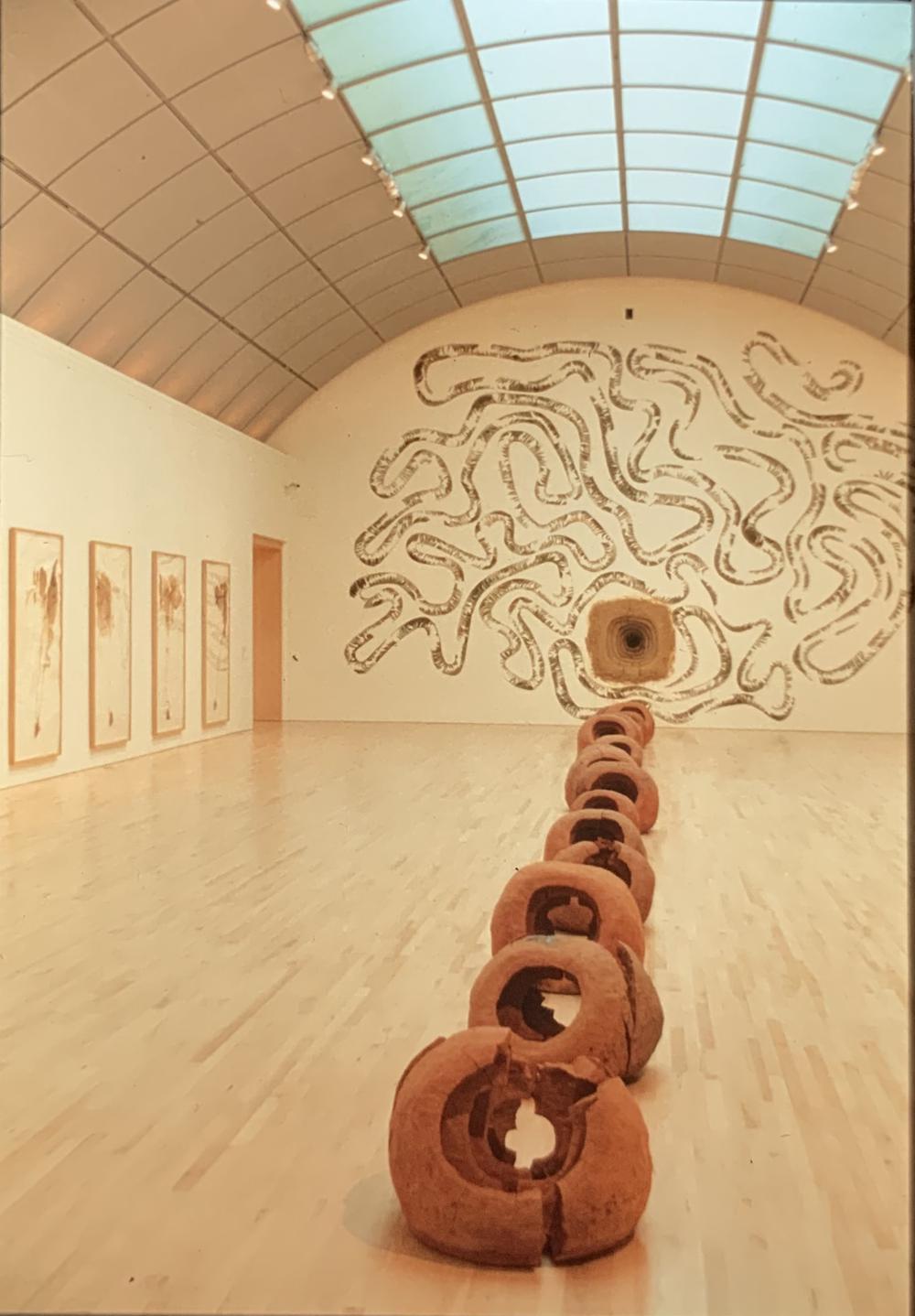Andy Goldsworthy. Vein of the Earth

Soft, iron-rich red stones hide under hard rocks along the Scaur Water, a river near the village of Penpont in Scotland, where Andy Goldsworthy has lived since 1986. Their color draws him to the river; it’s a red he’s found while making work in landscapes across the world, as in the California clay the artist often uses. The red comes from iron, the same element present in blood, and so for Goldsworthy it’s a red that flows “around the Earth as a vein.”1 Clay Holes (1994)—as seen in the 1995 Breath of Earth exhibition at the San José Museum of Art, Goldsworthy’s first American museum show—line the center of a gallery like an energetic spine. Dried and cracked, red clay signals an opening in the earth’s surface, releasing energy like an earthquake.2
Andy Goldsworthy, Wood, ed. Terry Friedman (London: Viking, 1996), 8. ↩︎
“Andy Goldsworthy: Faultline: On Site,” Spark, KQED, San Francisco, aired June 2005 (posted September 10, 2010), video, 5:39 minutes, available at youtube.com/watch?time_continue=17&v=g1UpH5-5JJ4&feature=emb_logo. ↩︎